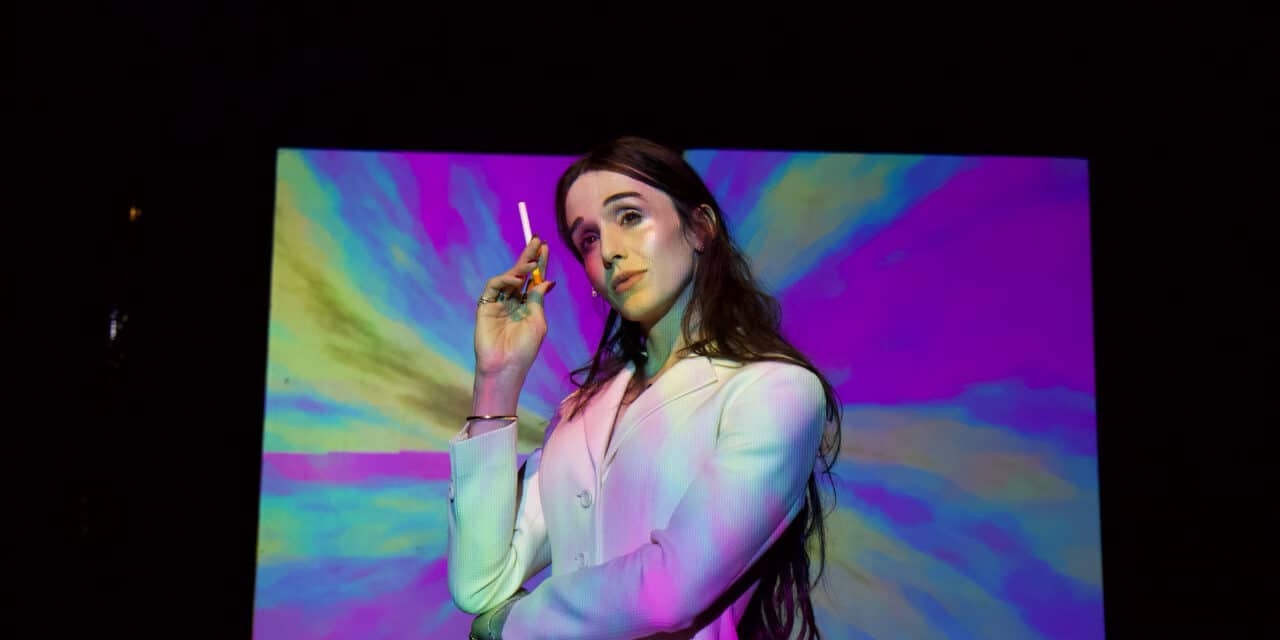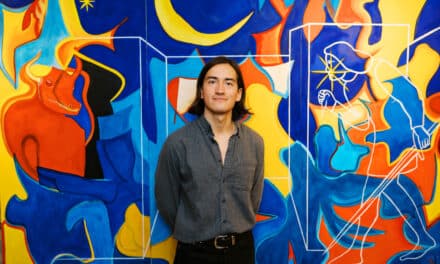Photo Credit Mari Eimas-Dietrich
Darwin has never been easy to pin down. Best known to many for holding her own opposite Kevin Bacon and Carrie Preston in Blumhouse/Peacock’s They/Them, the Brazilian-born actress, singer, writer, and producer has spent her career refusing the neat boxes the industry tries to assign. She has released multiple albums, lit up Brazilian television and stage productions, launched Madalena Productions to carve out space for creative misfits like herself, and is even opening Cahoots, a café and cultural hub on the Lower East Side.
Now, she’s preparing for what might be her most intimate project yet: LILI/DARWIN, premiering August 2, 2025, at The Tank in New York City.
The solo play is part historical excavation, part confessional, part concert. At its core, it’s Darwin stepping into the spotlight on her own terms—no character to hide behind, no industry expectations to fulfill. The work draws parallels between Darwin’s own journey and that of Danish painter Lili Elbe, one of the first known recipients of gender-affirming surgery. In Darwin’s hands, Lili’s story becomes less an archival curiosity and more a mirror—reflecting the cost of visibility, the vulnerability of becoming, and the radical act of living authentically in a world that still resists making room for you.
“I wanted to demystify trans experience,” Darwin says, “but not in an abstract way—through my story, my voice, my music. To create a space where people can sit with the truth of it, maybe even see themselves in it.”
Featuring live music and original storytelling, LILI/DARWIN is less about performance than revelation. It arrives on the heels of Darwin’s transition surgery in late 2024—a moment that, for her, was never about reinvention but emergence. After months of recovery and reflection, 2025 has become a year of alignment: body, voice, and purpose finally in sync.
To witness Darwin sing is to understand what healing sounds like—her voice, as one friend described it, feels like a massage to the eardrums. On stage, that voice doesn’t just carry notes, it carries history, longing, and resilience.
With LILI/DARWIN, Darwin is doing what she has always done: creating art that doesn’t just entertain, but insists on connection. It’s a story about claiming space, about visibility as a form of survival, and about the messy, miraculous act of becoming who you are.
And in true Darwin fashion, it’s not just theater—it’s a rebirth.
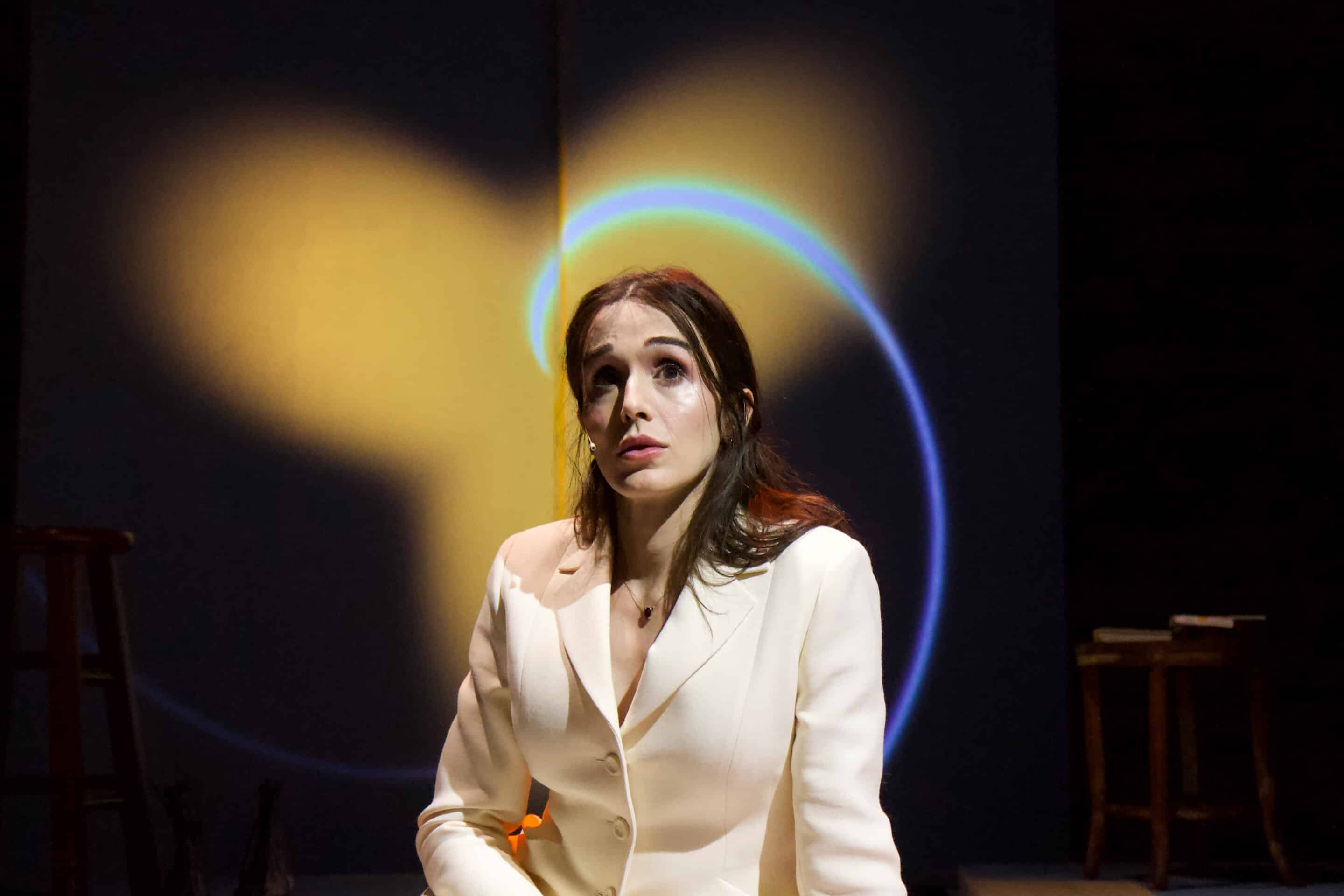
“LILI/DARWIN” feels like a living, breathing act of reclamation. When did you first realize Lili Elbe’s story was something you needed to intertwine with your own?
I first held Lili Elbe’s diary in my hands when I was thirteen. I didn’t speak English yet, but the title — Man Into Woman — reached across language and named something I didn’t yet have words for. Years later, as I began my own transition, I kept returning to her story. It wasn’t about comparison; it was about recognition — of courage, of longing, of becoming. Eventually, it became impossible to tell my own story without hers.
You’ve described this as a return to the stage following your transition. What kind of emotional prep did it take to revisit live performance through such a personal lens?
It required a kind of vulnerability I’d never had to access before. Performing after transitioning isn’t just “returning” — it’s stepping onstage for the first time as the woman I am. I had to give myself permission to be fully present, to feel the weight and the lightness of that truth in front of an audience.
There’s something poetic and haunting about telling your story through someone else’s — especially someone like Lili. Was there ever a moment when their voice and yours blurred?
Absolutely. There were moments in rehearsal when I couldn’t tell if I was speaking her words or mine. That blurring felt less like confusion and more like communion — as if she was lending me her voice, and I was lending her mine.
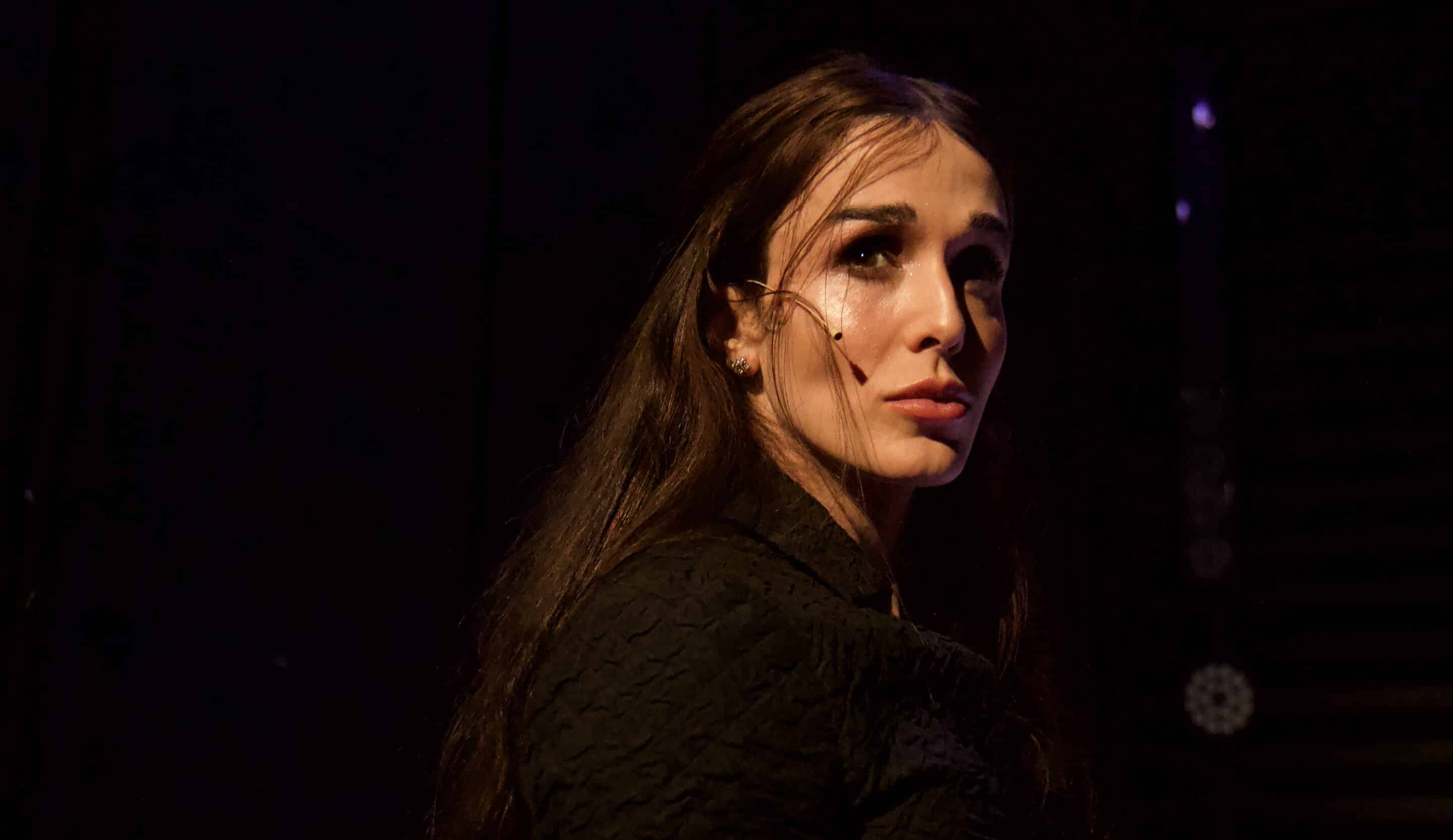
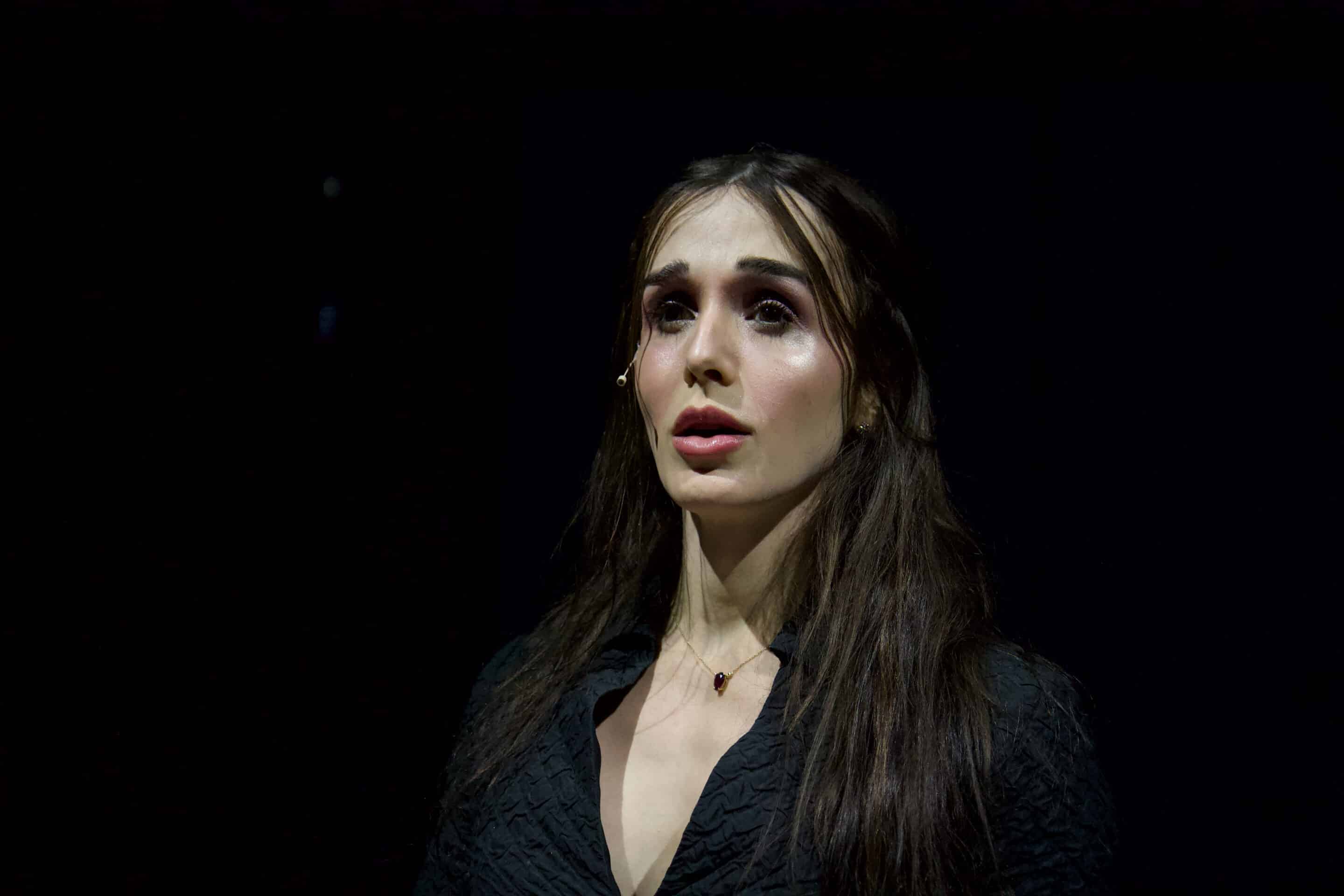
You’re not just stepping into the spotlight — you’re building the stage, scoring the moment, and shaping the room. What draws you to create across theater, music, and now physical spaces like Cahoots?
Creation has always been my way of making sense of the world — whether through music, theater, or the space of a café like Cahoots. Each form feels like a different instrument in the same orchestra. I’m drawn to the intersections — where a song can change how a room feels, or a room can inspire a story.
The phrase “genre-defying” gets thrown around a lot, but “LILI/DARWIN” seems to genuinely live in a space beyond categorization. Was that fluidity intentional, or did it emerge organically from your process?
It was both. I never sat down and thought, let’s break every rule. But my life doesn’t fit neatly into one genre, and neither does this piece. The fluidity emerged from letting the work be what it needed to be — unboxed, unafraid.
You’ve worked in film, music, and television both in Brazil and the U.S. — how has your artistic voice shifted (or stayed rooted) through those different cultural and creative ecosystems?
Brazil taught me passion and boldness — to throw myself fully into every note and gesture. The U.S. taught me precision, structure, and how to refine that passion without dimming it. My voice is rooted in both — in the freedom of Brazilian storytelling and the discipline of American stages.
There’s live music in the show — can you tell us about how sound functions in this piece? Is it a character of its own, or more like an emotional undercurrent?
The music isn’t there to entertain — it breathes with the story. Sometimes it’s a whisper, sometimes it’s a wound. It’s both a character and an undercurrent, guiding the audience into spaces words can’t quite reach.


Launching Cahoots feels like more than just opening a café — it’s a cultural statement. What do you want people to feel when they walk into that space?
I want Cahoots to feel like the living room of a dear friend — warm, unpretentious, and open. A place where art and conversation spill into the same cup. Where you can come for coffee and leave with an idea, a connection, or just a little more hope. That’s why I am doing this with my best friend Daniel Frehner

Photo credit: Oliver Miguel
Visibility is a theme you return to — both as a burden and a gift. What does being seen on your own terms look like for you now, in this chapter of your life?
For a long time, I felt like I was performing a version of myself for the world. Now, visibility feels like a reclamation — not just being seen, but being seen as I am. It’s a gift, even when it’s heavy.
You’ve spoken before about the way music feels in your body — like a massage to the eardrums, someone said. What kind of release — or resistance — do you experience when you sing these days?
When I sing now, it feels like alignment. Like every cell in my body is exhaling at once. There’s less resistance than before — less effort to “be” something. It’s just voice meeting air, truth meeting sound.

